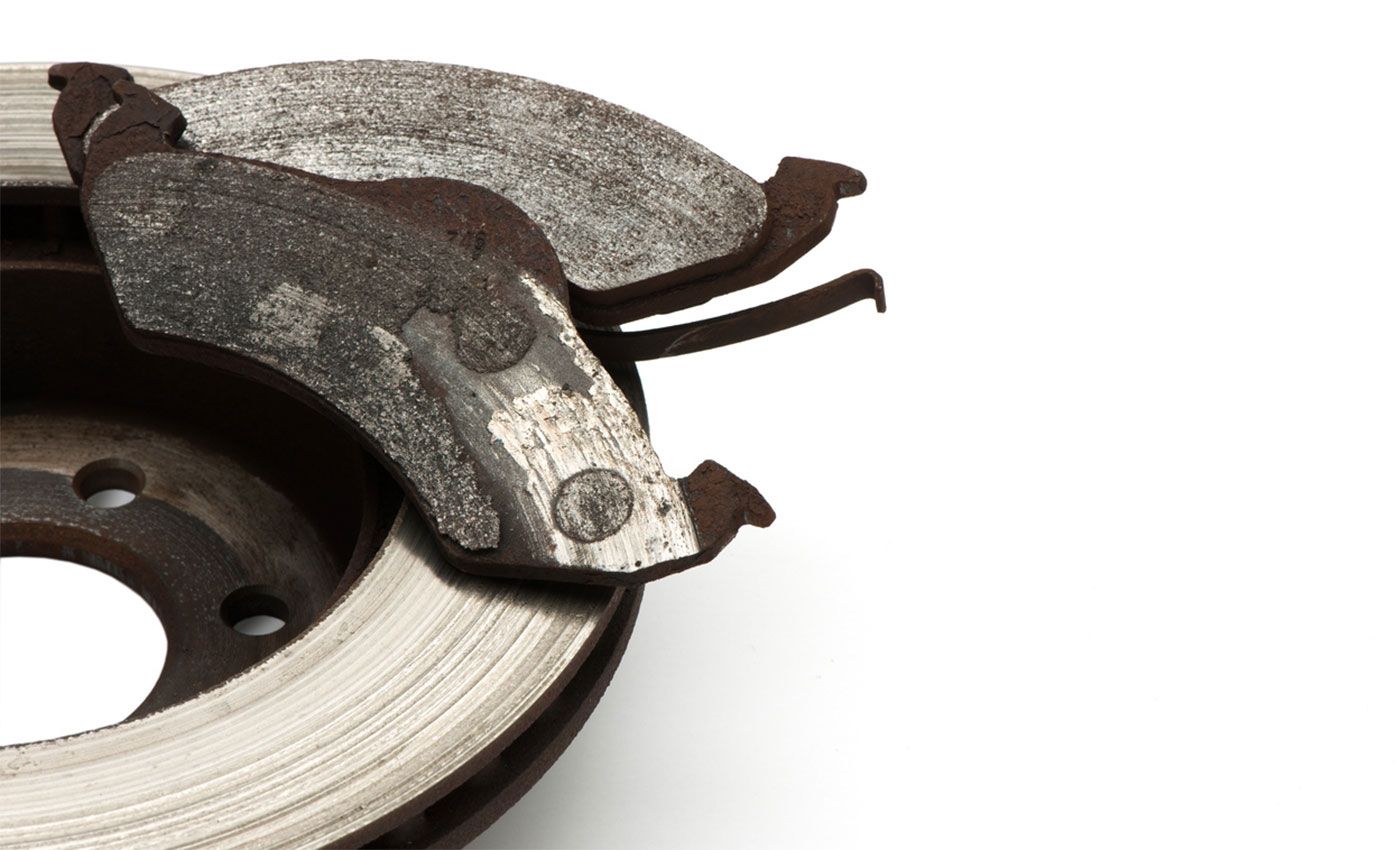If you’ve ever had your brakes lock up, you know how terrifying it can be. Drivers can lose their ability to turn and may even skid off the road. So, if you find your brakes randomly locking up or encounter sticking, it’s a serious concern.
So, what do brakes locking up mean for you and your vehicle? Read on to navigate the intricacies of brake lock-up — what it is, how it happens, what to do when it occurs, and most importantly, how to prevent it in the future.
What is Brake Lock-Up?
Whether you have drum or disc brakes, traction control, or no traction control, brake lock-up can happen to any driver. "Brake lock-up” refers to an event where the friction of your brakes overcomes your tire’s traction on the road. A similar event could be brakes that do not release when you lift your foot off the brake pedal, which can wear the brakes quickly and pull the vehicle to one side.
Imagine a skidding car — the wheels stop spinning, but the vehicle keeps moving. As a consequence of this, not only can the tires develop flat spots, but turning the vehicle during one of these situations can be very difficult. You might be thinking, “That sounds incredibly dangerous!” and you’d be right. We’re not fear-mongering here — brake lock-up and sticking brakes are nothing to scoff at, and certainly something you do not want to ignore.
What Would Cause Brakes to Lock Up (or Sticking)?: 7 Possible Reasons
There are many potential reasons for brake lock-up or sticking, but here are some of the most common:
1. Slippery Surfaces
No matter how healthy your brake system is, a wet or icy surface can lead to your brakes locking up. The friction of braking can overcome the low traction that slippery surfaces offer, which can enable your vehicle to continue moving even when the wheels are entirely halted. This is why it is important to brake smoothly when weather conditions are less than ideal. Heavily worn tires can reduce traction even further and exacerbate the problem.
2. Road Debris or Rust Buildup
Excessive rust or road debris buildup can prevent components like calipers or pads from moving, causing your brakes to stick or potentially lock up while driving.
3. Overheated Brakes
Your vehicle relies on friction to stop. Since friction generates heat, repeated hard stopping or prolonged riding of the brakes can overheat your brake system, potentially causing the hydraulic fluid to boil and metal parts to expand in size. When this happens, you may experience brake “fade” (a loss of braking power), sticking, or even lock-up.
4. Hydraulic Fluid Issues
For your brake system to function properly, it must be filled with the proper amount of clean, correct brake fluid. If you fill your brake system with an incorrect hydraulic fluid, it may suffer from reduced braking capacity and damaged hoses or seals.
5. Dirty Brake Fluid
It’s also important to replace your brake fluid according to your manufacturer’s recommended maintenance schedule. Over time, brake fluid collects water, which, when heated into steam, is compressible. Water can also trigger corrosion inside the braking system.
6. Malfunctioning ABS Unit
Many vehicles utilize an anti-lock brake system (ABS) to prevent their brakes from locking during sudden or aggressive stops. Anti-lock brakes use wheel speed sensors to pulse your brakes in these scenarios. Doing so allows the wheels to keep rotating somewhat during a stop, which enables you to stay in better control of your car as you come to a halt.
However, when an ABS malfunctions, it may not pulse the brakes, which can cause your vehicle to lose traction on slippery surfaces or lock up when braking.
7. Faulty or Damaged Components
Your vehicle’s braking system is exactly that — a system of crucial parts. For the system to work properly, all of its components need to be in tip-top shape. As such, brake lock-up can also happen when an essential part of your braking system — like a caliper or booster— is damaged.
What to Do if You Notice Your Brakes Sticking While Driving
Regaining control during a brake lock-up is paramount to staying safe. If the brakes lock when braking suddenly, do your best to become a human version of an ABS unit:
1. Slightly lift your foot off the brake pedal
When your brakes lock up, your wheels grind to a halt despite your vehicle continuing down its previous path. This can make it incredibly difficult to steer. To regain control, ease up on the brake pedal just enough to allow the tires to rotate again. Doing so may allow you to guide your car once more.
2. Pulse the brake pedal
Now that you have regained control, repeatedly depress and lift the brake pedal rapidly — just enough to maximize braking while being able to steer. Pulsing the brakes in this manner should retain your ability to steer and help enable you to come to a safe stop.
How to Prevent (and Fix) Brake Lock-Up
Brake lock-up — or any brake issue, for that matter — is a serious concern. The age-old adage, “An ounce of prevention is worth a pound of cure,” really rings true here. The best thing you can do for the occupants of your vehicle and other motorists on the road is to keep your brake system in healthy condition.
Even if you think a slippery surface caused your brake lock-up, please don’t ignore this problem! Stay on the safe side and ensure your brakes are in proper condition by visiting your nearest Firestone Complete Auto Care as soon as possible.
Not only do we provide brake inspections, but we offer everything you need to ensure they're working properly. From brake fluid exchanges to new brake pad installation, we're serious about ensuring your safety. Schedule an appointment today!


